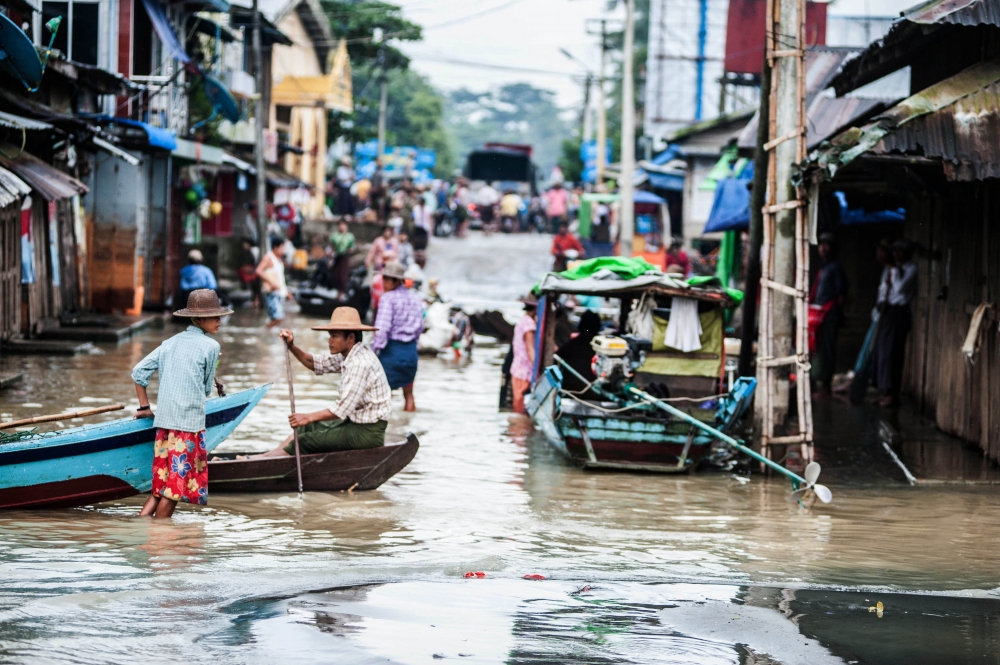Welcome to IRIN’s reading list. Every week our global network of specialist correspondents share their top picks of recent must-read research, podcasts, reports, blogs and in-depth articles to help you keep on top of global crises. We also highlight key upcoming conferences, book releases and policy debates.
Five to read:
Why localising aid is an elusive goal
In previous years, the IFRC’s World Disasters Report has focused on concrete issues such as HIV/AIDS, forced migration and malnutrition. This year, the topic is more philosophical: how to shift the balance of aid operations from international to local. The report argues that too much money and power rests with big international players and too little with the local groups who often do the most to save lives. It’s a theme the aid community has been wrestling with for years: everyone admits there’s a problem, but no one seems to have real answers. This report suggests some solutions but also highlights the huge obstacles to change. These include over-zealous financial checks, competing interests of recipient communities and local actors, and political and regulatory constraints in affected countries.
See IRIN’s take: Obstacles to going local
Solving the CAR problem
Rushed democracy is better than no democracy, right? A new report on the conflict in Central African Republic from the International Crisis Group suggests otherwise: “Elections alone will change very little in a country which today has ceased to function as a state.” As violence between ex-Séléka rebels, who are mostly Muslim, and predominantly Christian anti-balaka militias rages on, the ICG urges CAR’s transitional authorities to focus on disarming the various groups and reaffirming equal rights before moving forward with elections. Among other recommendations, the report says recruitment into the public services must reflect minority interests and calls for the deployment of more UN peacekeepers to areas where tensions are running high.
A worrying start
The Sustainable Development Goals formally come into being today, yet, depressingly, a flagship study by the Overseas Development Institute already predicts their failure. In the first comprehensive attempt to project their progress over the next 15 years, the ODI scores each of the 17 goals and reveals which ones need reform, revolution or a complete rethink. There is hope for halting deforestation and ending extreme poverty, both of which will be more than halfway to achievement by 2030, but plenty of causes for concern exist too. Inequality and global waste are actually set to worsen worldwide if trends continue, while progress would need to be “over three times faster” to reach the goal of zero hunger.
Less red tape please
A refreshingly honest blog post from Chris Blattman, associate professor at Columbia University, gives insight into the frustratingly bureaucratic world of international aid. After sitting on a panel debate looking at how to improve the humanitarian system through cash transfers, he witnessed how political wrangling, endless regulations, and poor global cooperation hinder real progress in the field: “It’s amazing how often the US government came up as an obstacle to doing the right thing.” Near the end, he reserved one particularly scathing point for the UN: “If anyone can figure out how to take $10 to give a refugee $1, they will.”
A bungled response to Ebola
Bad chlorine, missing buckets and barely-there health systems: just some of the lowlights in this must-read investigation by the Associated Press, which finds that the World Health Organization and other responders utterly failed to cope with the Ebola epidemic in West Africa. It exposes how a lack of supplies led hospital staff in Sierra Leone to wear ill-fitting gloves and stray plastic packaging to protect their feet. Joseph Fair, a US expert who advised the Sierra Leonean government, recalls “death by conference call”: health officials argued about the colour of bodybags and whether to order more ambulances even as supplies dwindled and people continued to die.
One to listen to:
Frenemy of the Yemeni
In this week’s Global Thinkers podcast from Foreign Policy, host Amanda Silverman is joined by journalist Elizabeth Dickinson and activist Farea al-Muslimi to discuss Saudi Arabia’s risky role in Yemen’s conflict, and what the West could do to intervene. Al-Muslimi argues that when the richest Arab countries bomb the poorest ones, it changes local political dynamics for the worse. Dickinson agrees: “[It’s] really emblematic not of Saudi power but in fact of their feebleness in their ability to create or facilitate a political solution.” They conclude that the crisis cannot be solved by military might, but seem optimistic that it’s not too late to broker peace between rival sides “if there is enough international will.”
One to look at:
How to stop a genocide
Genocide is rare and devastating – but also preventable. This week, the Simon-Skjodt Center for the Prevention of Genocide launched the Early Warning Project, which aims at predicting future state-led mass atrocities by tracking assaults on minorities in various countries. Using state-of-the-art statistical analysis, feedback from regional experts, as well as models put forward by political scientists, their world map highlights countries at the highest risk of experiencing a future episode of genocide:

The top 10 include Myanmar, Sudan, and even Yemen. Ultimately, many lives are at stake every day in such nations. The project aims to provide advocacy groups and governments with “more opportunity to take action well before killings occur.”
From IRIN:
Drifting in the delta
“When the wind is heavy and the waves are big we get afraid. Sometimes we fear we will sink.” Hkin San Htay, a rice farmer and mother of four, was left with a rickety house standing on stilts only a foot above the water after parts of Irrawaddy delta in Myanmar suffered its worst flooding in decades. Our photo feature from the region looks at how locals are coping with the aftermath of Cyclone Komen, which hit roughly two months ago. In the outskirts of Pathein, people continue to wade through flooded streets, while in the village of Sit Pin Gyi, some are improvising by paddling in makeshift boats and salvaging what’s left.








